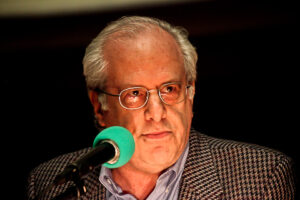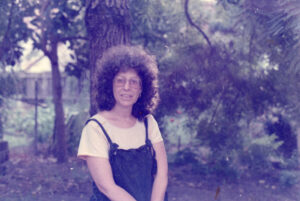Douglas Fir Wilson Papers
A philosopher, writer, activist, and artist, Douglas Wilson founded the Rowe Conference Center affiliated with the Unitarian Universalist camp in Rowe, Mass. Born in Vancouver, B.C., in 1946, but raised primarily in California, Wilson earned degrees at UC Santa Barbara (1967) and the Starr King School for the Ministry in Berkeley (1970), before being ordained at the First Uniarian Congregational Society in Brooklyn. He first came to Rowe in 1971 to work as assistant director of the Junior High summer camp, but soon proposed building a center at Rowe modeled on the Esalen Institute which would offer year-round retreats and workshops founded in Unitarian Universalist principles of equality, justice, freedom, peace, and the respect for the interdependent web of all existence. Serving as Executive Director (and after 1985, as co-Executive Director with his partner Prue Berry), Wilson brought together people who were “politically aware, psychologically sophisticated, and religiously based,” ranging from the Berrigans and Nearings to Jean Houston and Abbie Hoffman. The Wilsons retired from Rowe in December 2012.
The Wilson collection contains nearly forty years of files accumulated during Douglas Wilson’s time as Director of the Rowe Conference Center. In addition to a nearly complete run of the Center newsletter, Wilson retained materials on dozens of the thinkers, writers, and activists who came to Rowe, with each file containing correspondence (usually both directions), background notes and clippings.




